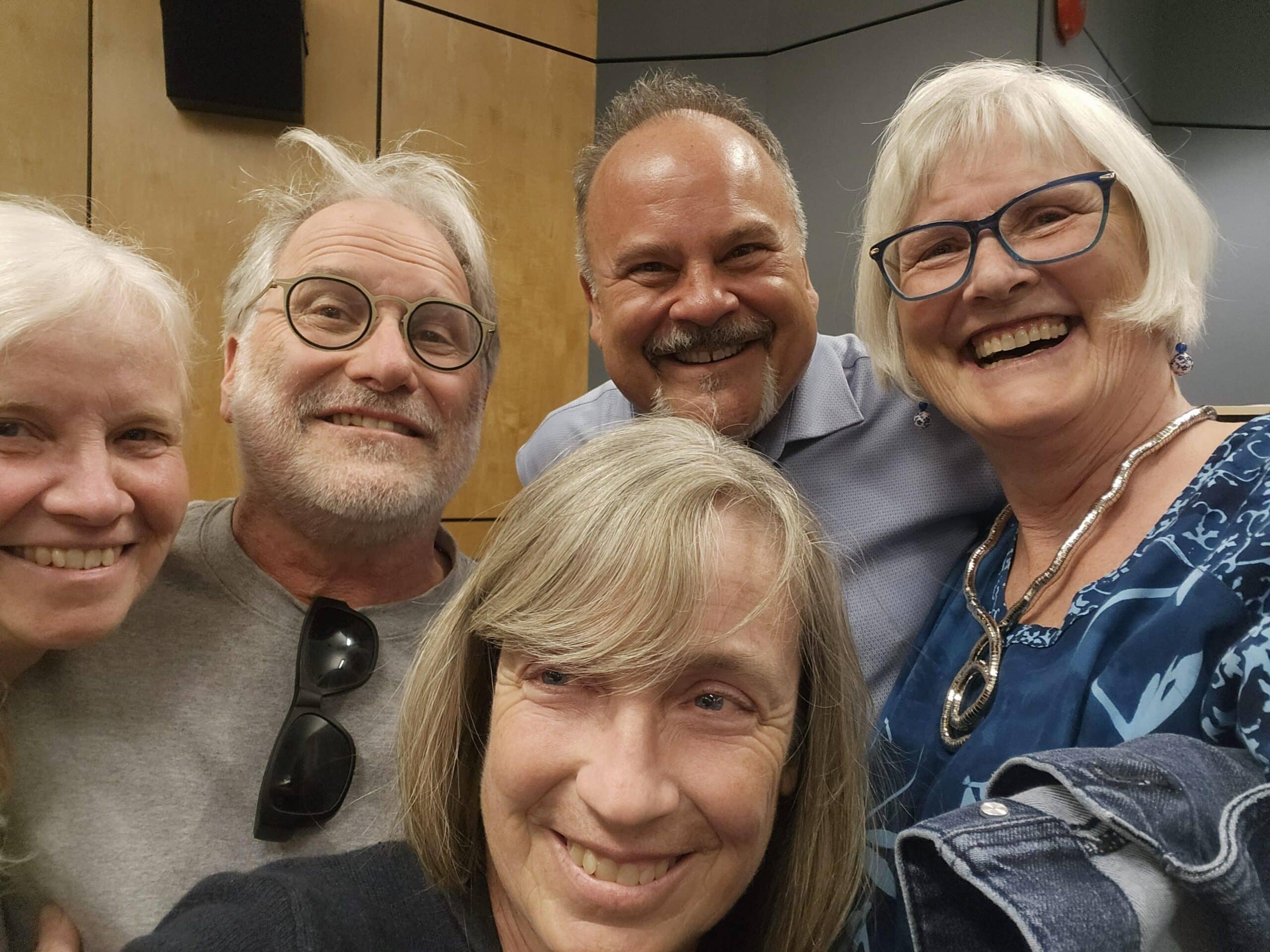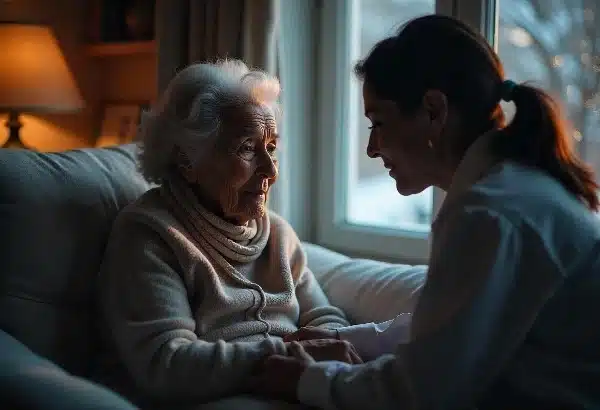Guest blog post by Jennifer Buchanan of JB Music Therapy – a Canadian company based in Calgary, Alberta. “Our mission at JB Music Therapy is to transform lives through excellence in clinical practice and education by bringing music into the foreground. JBMT has been providing music therapy services since 1991. We offer personalized programs for individuals coping with brain injury, mental health issues, learning challenges, dementia, palliative care, addictions, long-term care, autism, as well as youth at risk.”
The Music Therapist’s primary aim is to assess, identify and provide music experiences that will evoke the greatest positive response from individuals and groups in the areas of: comfort, communication, self and social expression, mood, motivation and perception of self-worth.
Music Therapy is the study and practice of how music affects people. Our music therapists use music as their primary intervention when working with all population groups. The music therapists will incorporate singing, vocalizing, instrument improvisation, exploration of unique sounds and other sensory and sensitive experiences. Tempo, timbre, melody, harmony, pitch and genre of music are always considered – with the primary aim of supporting the needs of the clients/patients by easing anxiety/stress, opening doors to communication, engaging and creating opportunity for inclusive social interactions.
Integrating music with supportive care of the dying is becoming more common in hospice and palliative care programs. Our clinical work has indicated that music therapy in Palliative Care can:
- Help to Decrease Anxiety.
- Help with General Feelings of Discomfort.
- Address Spirituality
- Enhance Quality of Life.
A certified music therapist is a graduate of a Canadian Association for Music Therapy recognized music therapy education program. Music Therapist Accredited (MTA) is given to music therapists who have completed their education (undergrad or masters) in music therapy, a 1000-hour internship, and have passed the Certified Board of Music Therapist’s exam.
Gwen: will you remember me?
Being aware of your personal soundtrack can have some profound consequences.
For Gwen, music enabled her to become all that she could be just a month before she would die. Gwen, a fifty-five-year old blonde beauty, sat in a warmly decorated room near the window. Sixteen months prior, she was diagnosed with cancer. Now she sat in a hospice room near the outskirts of town. She was a model patient going through many rounds of chemotherapy and radiation. After her initial diagnosis and for several months, her family and friends were not aware of her cancer. Gwen would rarely ask for help. The care staff were just around the corner and would often enter her room to check on her. Except for occasional pain medicine she would smile at them and say, “I’m okay.’ Her husband had passed away many years before and she would often say she was glad he went first as this would have been very difficult for him.
She never expected the breast cancer to metastasize at such a rapid rate until she heard those fateful words, “There is nothing more we can do for you but give you a comfortable place to rest.” She had dreaded telling her only daughter and her sister the news. When she told them, they both broke down in tears and were soon making sure the doctors had done everything they could. Now in hospice, Gwen did all she could in her fragile state to prepare her loved ones for the inevitable.
When I was introduced to Gwen, she was wearing a colorful head scarf that covered what was once blond hair. Pictures of her and her family were all around the room, interspersed with colorful paintings and drawings.
“Come, sit close to me, I have been expecting you,” she said.
She pointed to the chair next to her chair by the window and rested her hand on my shoulder as I sat down. She turned slightly and in a sweet, gentle voice said, “I have had a lot of time to process what is happening to me, and understand I must die. I am worried about my daughter, Hailey, and my sister Julia. They are very angry. She took a deep breath and said, “They are not accepting that this is happening to me or to them.” She brushed a few strands of what was left of her hair away from her eyes and said, “I need you to help me.”
She pointed to several pieces of art around the room that she had created over her lifetime. She spoke of how her daughter was as passionate about painting as she was. “It’s in the genes,” she assured me and mentioned to me her sister had started taking lessons over the past few years. She told me that she had some ideas of how to integrate art and music while also helping her daughter and sister come to the understanding that she is going to die—and soon.
Just as my grandmother had a plan years earlier reaching into a desk drawer for my grandfather’s favourite song, Gwen’s plan also rested in the desk drawer she had asked me to open. “Take out the small stack of papers.”
I looked at the ten songs in front of me.
“Will you please play the songs on your guitar on Saturday and meet us here precisely at 2:00 p.m.?”
Before I had the chance to say, “I don’t work weekends,” her blue eyes crinkled and she touched my shoulder again. I would change my weekend plans.
That Saturday, I had the songs prepared and arrived precisely at 2:00 p.m. Her daughter and sister were sitting on either side of her. She asked me to sit in the corner on a chair. Once we were all in place she sat up a little further in her bed. She started by saying, “Thank you for coming.” She then turned to her daughter Hailey and her sister Julia and said, “I invited you here today because we need to say goodbye.” Silence. “I know that this is hard for you as it is for me, so I came up with an idea that could perhaps help all of us. Hailey will you please go into the side closet and take out the piece of canvas I asked Julia to bring last week.”
Hailey slowly walked over to the closet, opened the door, and brought the canvas that had been leaning against the wall inside. “Julia will you please reach into that top drawer and bring out the pastels that one of the nurses brought for me.” Julia walked to the end of the bed and opened the top drawer where the pastels were. There were many colors.
Once the two women were back on either side of Gwen, they heard her speak again. “I have asked Jennifer to play ten songs today. During the first song I am going to start drawing and when the song ends I am going to pass the canvas to you Julia and you are going to continue the picture adding in whatever the music brings to your mind.
“When the second song is finished then you will pass the canvas to Hailey who is going to continue from where you left off. We will pass the canvas back and forth after every song for the first nine songs and then relax and reflect during song number ten. The tenth song is a special song I have selected for the three of us.”
Julia and Hailey stared at Gwen not saying a word. Gwen’s determination was clearly visible on her face and to say anything would break the spell she had on all of us. Hailey passed the canvas to Gwen and reached into the box on Julia’s lap to select a couple of pastels. I took a deep breath. When Gwen looked at me and nodded slightly I started to play. I could not see what was being created on the canvas, but I could definitely see a transformation happening on the faces of the three women. The canvas did what it was supposed to—passing between each family member at the end of each song. No tears were shed, just a change of focus and an occasional smile as they passed on their contribution.
We sang many powerful songs. What a Wonderful World. Lean On Me. You’ve Got a Friend. Soon it was time for the last song. I was nervous as I strummed the first few chords as I knew there would be no more pastels on the canvas, only reflections of what was created. The highly emotionally charged song Gwen selected as the last piece was Louis Armstrong’s, “Wonderful World.”
Gwen put a few finishing strokes on the canvas and then held it up for each of them to look at. The tears they held back released and two arms went behind Gwen in an embrace as they gazed at the piece of art they created. I finished the last words and put my guitar down quietly. Gwen passed the canvas in my direction as both her daughter and sister’s faces were now embedded in both of her shoulders. I carefully put the canvas on a high shelf looking down on them so it could dry. It was a beautiful meadow with flowers of many colours. I left the room so the women could say goodbye.
Gwen had set the intention of using her life’s music soundtrack as the backdrop to already powerful relationships. It was a non-verbal means of sharing herself and her heart, and those songs allowed her to say a touching goodbye.








